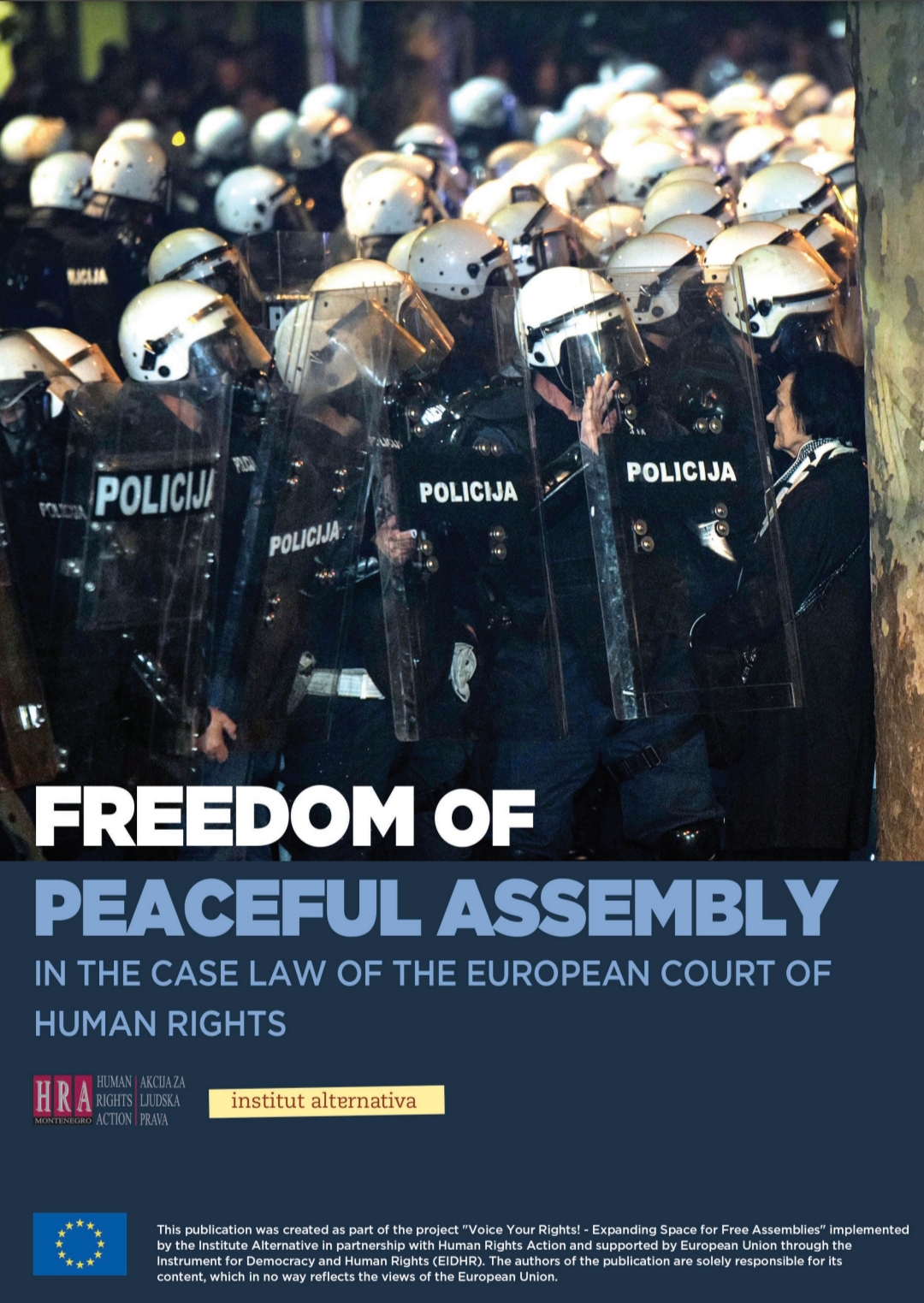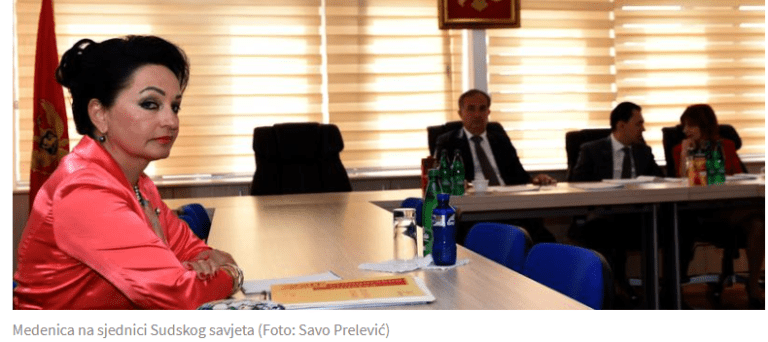
Open borders for everyone with a negative PCR test or test at the border
17/06/2020
Freedom of Peaceful Assembly in the Case Law of the European Court of Human Rights
23/06/2020HRA REACTS TO OBJECTIONS OF PRESIDENT OF SUPREME COURT ON ACCOUNT OF NON-GOVERNMENTAL SECTOR AND REMARKS ON JUDICIAL STATISTICS

The president of the Supreme Court of Montenegro, Ms. Vesna Medenica, at a press conference on 19 June presented the Report on the Work of Courts for 2019. On the occasion Ms. Medenica also criticized non-governmental organizations, among others[1].
Human Rights Action (HRA) reacts to that criticism and also reminds on the EU’s “serious concern regarding the question of reliability and availability of statistics data produced by the Judiciary Information System (PRIS)”, that serves as basis for the yearly report on the work of courts.
Regarding objections that non-governmental organizations “stay silent when judges are targeted on social media”, made by the president of the Supreme Court, Mrs. Vesna Medenica, HRA indicates that the Judicial Council, whose member is Vesna Medenica, did not react to any social media post that Mrs. Medenica called out NGOs for, although it remains within the competence of the Judicial Council, as state authority, to ”secure independence and autonomy of judiciary and judges” (article 27 of Law on the Judicial Council and Judges). The Judicial Council has, in fact, very rarely reacted to date in cases where independence and autonomy of judges had been endangered, despite it being in its explicit competence.
HRA did not notice the posts on social media which president of the Supreme Court spoke about, but if Ms. Medenica did notice such posts, which also endanger safety of judges, as she said, HRA expects that she and the Judicial Council directly point to those posts and react to them, and if needed also inform the state prosecutor. The worrying fact is that the president of the Supreme Court chooses to react to such a serious matter through criticism of NGOs, which are under no obligation to know about or deal with such events, unlike members of the Judicial Council, who are being paid by the citizens from the state budget to perform their roles according to the Constitution and law.
HRA recently noticed that an MP of the ruling DPS party has recently called ,”impermissible” a decision of a judge of the Basic Court in Podgorica to cancel the detention of a suspect for demolishing monument of the Thirteenth July Uprising, and has announced that the DPS will “work on it to change and amend all legal solutions which will make such decisions possible”. HRA criticized such stance and on 29 May 2020 called upon the Judicial Council to react because such statements of party representatives which make the executive power directly endanger independence of judicial authorities. The NGO Association of Judges of Montenegro also made a public statement regarding that event saying that “named MP has harshly hurt independence and image of judicial authority, and then even contributed to creating negative attitude of the judiciary in public”. However, despite timely reactions of NGOs, neither the Judicial Council as state authority whose constitutional role is to secure independence of the judicial authority, nor Mrs. Medenica, as a member of the Judicial Council and president of the Supreme Court, found it appropriate to react to the disputed statement of the MP and stand in defense of independence and reputation of the judicial authority in Montenegro.
We expect the Judicial Council to consider all these questions on June 22 at 12:30h, at its session, at which HRA’s representative will also be present, because without strong institutional reaction adequate guarantees of independence and impartiality of the judiciary cannot be secured.
Regarding data on the work of courts published in the yearly report on work of courts for 2019, HRA reminds that the European Commission stated in its report on Montenegro for 2019 and in recently published non-paper that “serious concern remains regarding the question of reliability and availability of statistics data which is provided by PRIS- Judiciary information system”. HRA is by no means wishing to undermine exceptional individual efforts of judges with this, but we must point out that convincing general image on the work of courts may only be reached upon convincing, secure and transparent PRIS, which Montenegro sadly still does not have, although that system is in renovation ever since 2016. Doubting the reliability of data on the work of courts cannot be of use to anyone, especially not the state, whose accession to the EU directly depends on the trust in the work of its institutions.
HRA also reminds that the European Commission has been pointing out in its yearly reports on Montenegro ever since 2014 that “there is concern regarding reliability and consistency of data which are gathered via PRIS”, that “PRIS still has flaws in regards to security and does not function reliably outside of Podgorica”. Furthermore, an EU expert, Ms. Grubišin, noted in her report in 2016 that “the base of Montenegrin Judiciary information system (PRIS) contains undocumented data”. This statement raised significant attention at the time as, according to the opinion of experts on information technology, it implied that someone had been adding data to the system, not supported with documentation.
[1] For example, Mr. Marin Mrcela, head of GRECO, had also been criticized.







 English
English